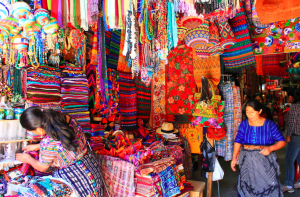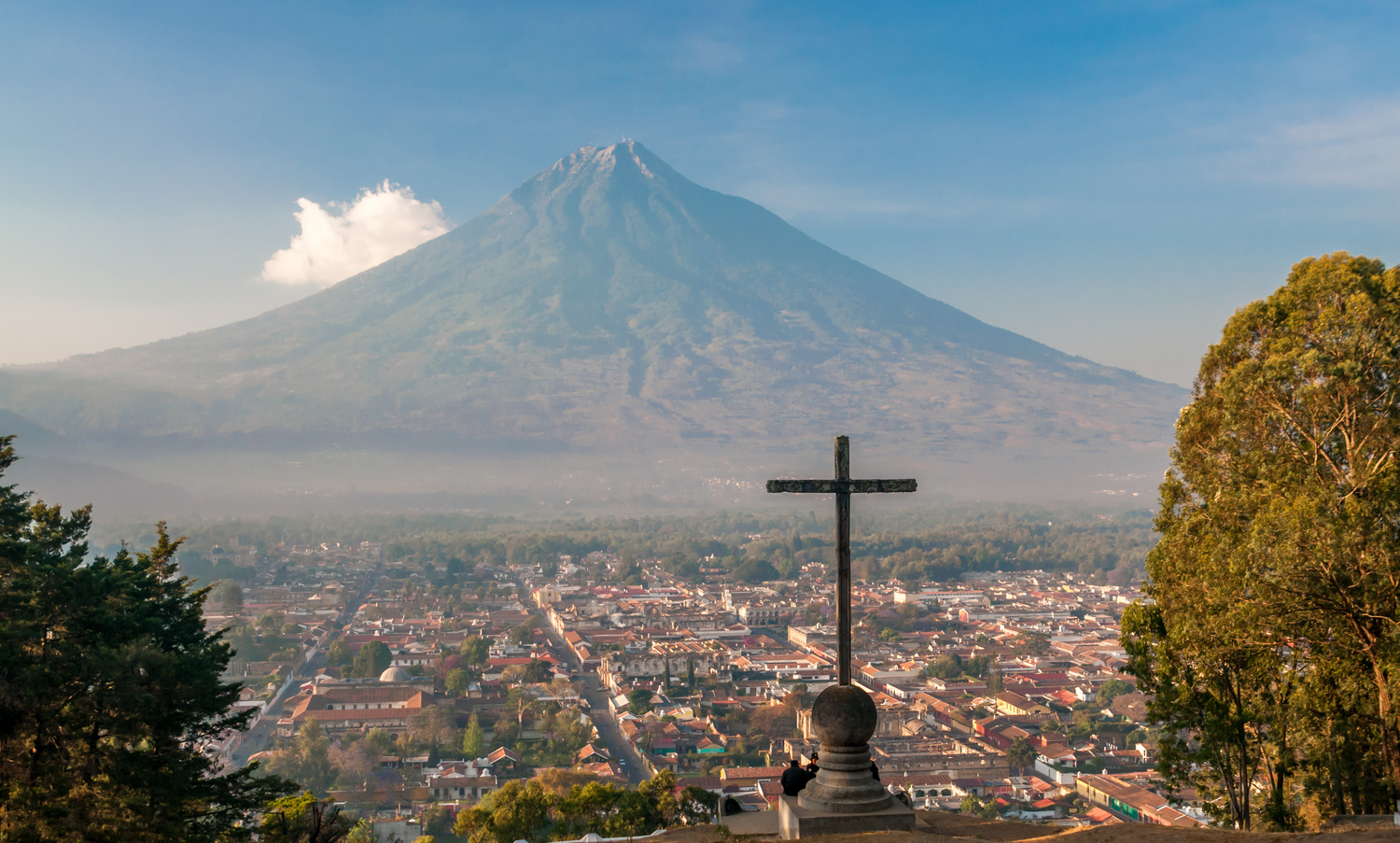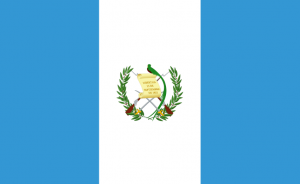
In the summer between my sophomore and junior year of college (undergraduate), I participated in a medical volunteering program for 2 weeks in Antigua, Guatemala. As a pre-med student, I knew I wanted to do something during my summer that involved medicine and figured volunteering in a hospital or clinic would be my best bet. Unfortunately because I had a mostly full time job, I was unable to secure any type of volunteering program locally since they all required a certain amount of hours that I would not be able to complete before returning to my university in the fall.
I then decided to look online at volunteering abroad, and found a myriad of programs that fit my time constraints perfectly. I honestly did not do too much research and just clicked on the first organization I found that had a solid amount of positive reviews and wasn’t too expensive. Looking at the cheapest options, I saw that in Latin America they offered an affordable medical program in Guatemala. While scrolling through the program description, the phrases “gain hands on experience” and “provide check-ups and basic medical care” piqued my interest as the idea of actually getting to perform medical procedures sounded incredibly appealing to myself as a student interested in a career in medicine. I imaged working in a hospital with doctors and nurses and getting the opportunity to experience medicine directly. The program description made it seem that these “poor” communities needed any help they could get, so I figured that I could kill two birds with one stone-help this underserved country while also gaining medical experience. Even though there were red flags consistently throughout the program description-the program oozed “voluntourism” and provided very brief and limited information on what actually would take place during participation- I wasn’t suspicious at all because I didn’t expect anything that involved volunteering to be problematic.
After signing up, there was a very brief pre-departure guide I had to complete before embarking on my trip. The guide was just a general guide and mostly focused on the logistics of getting there (ie. visas, packing list, etc.). There was a short list on my responsibilities, but it didn’t really mention anything about ethics. There were also 2 optional pre-departure training modules that were more informative on ethics, but were brief and took less than 30 minutes to complete. I didn’t really feel that prepared for my program, but figured I would get more instruction and guidance once I arrived.
 Once I finally made it to Guatemala, I started to see problems and holes within the program. Before starting my rotation, I met with the medical coordinator for the program to have orientation. The orientation was pretty short and consisted of a powerpoint on the kind of care we could provide. After telling him I had had no prior experience in medicine, he told me that I would act somewhat like a nurse, taking weight, height, blood pressure, heart rate and temperature, making beds, cleaning, talking with patients, preparing materials and sterilizing equipment. Even though I told him I didn’t know how to take blood pressure or heart rate, he assured me the other visiting volunteers at the clinic would teach me. This orientation started to leave me a little hesitant about the program since he asked us to provide medical care, but expected other volunteers to teach us instead of himself as a doctor showing us.
Once I finally made it to Guatemala, I started to see problems and holes within the program. Before starting my rotation, I met with the medical coordinator for the program to have orientation. The orientation was pretty short and consisted of a powerpoint on the kind of care we could provide. After telling him I had had no prior experience in medicine, he told me that I would act somewhat like a nurse, taking weight, height, blood pressure, heart rate and temperature, making beds, cleaning, talking with patients, preparing materials and sterilizing equipment. Even though I told him I didn’t know how to take blood pressure or heart rate, he assured me the other visiting volunteers at the clinic would teach me. This orientation started to leave me a little hesitant about the program since he asked us to provide medical care, but expected other volunteers to teach us instead of himself as a doctor showing us.
After arriving to the clinic where I would be volunteering at, I was sent to work at the nurse’s station. At my rotation, there were 2 other volunteers placed there as well who had been there for about 4 weeks. One was applying to medical schools in the United States and the other was a 3rd year medical student at a university in Ireland. Luckily, one of them spoke spanish fairly well and was able to translate for us when we interacted with both the nurses and patients.
After the other volunteers briefly taught me how to perform the basic nurses duties (blood pressure, height, weight, and temperature), I was mostly on my own. It was definitely very nerve wracking having these duties when I’d never done them before and was even more difficult considering I spoke very little of the language. I was especially confused on taking blood pressure and while I immediately should have said that I wasn’t sure what I was doing, I was embarrassed to tell the other volunteers since they insisted it was an easy task and that I’d get the hang of it eventually. This is definitely something I wish I could’ve gone back to and done differently because there is a large possibility that patients’ information was recorded incorrectly due to my lack of experience. This was when I started to realize that gaining hands on experience wasn’t what I imagined at all. In my head I thought that everything would go smoothly and I would be ready to help the professionals in anyway possible. In reality though, my lack of experience became even more apparent to myself and I started to become suspicious that the “help” I was providing wasn’t all too helpful.
 While my lack of training may have led to incorrect patient information being taken down, there were other pre-med volunteers who were given duties that were even further beyond their scope of understanding and led to medical complications for patients. Since there were other volunteers working at my clinic, they cautioned me right away that I shouldn’t help with procedures such as giving stitches or injections since we didn’t have the training for that (I think they figured taking down patient information was harmless enough that my inexperience wouldn’t be an issue). I was very thankful for that advice since I was already feeling uncomfortable with the duties I had, I couldn’t even imagine how stressed I would have been if I had to perform anything more advanced. However, other volunteers weren’t as reserved. I remember this one other volunteer bragging to me about how the doctor had allowed him to give injections to a patient. He said that he didn’t really know what he was doing and he ended up piercing her 5 times because he kept doing it wrong. Another volunteer told me she helped stitch a patient up and said she was concerned that her stitches weren’t done right since she had never done it before. It was at this point that I really started to question the program we were on. Why weren’t there more regulations enforced by the program? Why were the duties of the volunteers so ambiguous? Why was I starting to feel so uncomfortable with what I was doing and why weren’t the other volunteers having the same questions I was?
While my lack of training may have led to incorrect patient information being taken down, there were other pre-med volunteers who were given duties that were even further beyond their scope of understanding and led to medical complications for patients. Since there were other volunteers working at my clinic, they cautioned me right away that I shouldn’t help with procedures such as giving stitches or injections since we didn’t have the training for that (I think they figured taking down patient information was harmless enough that my inexperience wouldn’t be an issue). I was very thankful for that advice since I was already feeling uncomfortable with the duties I had, I couldn’t even imagine how stressed I would have been if I had to perform anything more advanced. However, other volunteers weren’t as reserved. I remember this one other volunteer bragging to me about how the doctor had allowed him to give injections to a patient. He said that he didn’t really know what he was doing and he ended up piercing her 5 times because he kept doing it wrong. Another volunteer told me she helped stitch a patient up and said she was concerned that her stitches weren’t done right since she had never done it before. It was at this point that I really started to question the program we were on. Why weren’t there more regulations enforced by the program? Why were the duties of the volunteers so ambiguous? Why was I starting to feel so uncomfortable with what I was doing and why weren’t the other volunteers having the same questions I was?
Besides just the volunteer aspect of the program, there were a lot of problems with the program as a whole, in particular when it came to safety. We were warned to never travel by ourselves at night. In keeping with those rules, two volunteers on my program walked home together one night after hanging out downtown. On their way home, someone pulled a knife on them and took all their belongings. The volunteers were traumatized and felt very unsafe about what had happened and contacted the program to let them know of the situation. The program responded incredibly insensitively and told them it was their fault for walking home late at night and didn’t provide any support for the two. Their response to an emergency situation such as this really made me concerned about the legitimacy of this program. They had told us it was okay to be out at night as long as we weren’t alone, yet blamed the volunteers for what happened instead of offering emotional support and/or more information on how we could stay safer while out at night.
I left my program feeling differently than I had expected. While I loved the country I was staying in, I felt disconnected from what I was actually doing. I felt uneasy about what myself and other volunteers had done without any medical experience and questioned my helpfulness. My experience showcases how easy it is for medical volunteering programs to be problematic and harmful for the communities they’re situated in when there is not an emphasis on global health ethics.
Note from CFHI: Many thanks to Zoe for sharing her story. If you have questions about ethical engagement in global health experiences please visit the publications page on the CFHI website (https://www.cfhi.org/publications) or listen to a recent webinar (https://www.cfhi.org/cfhi-webinars). We are also always available to answer questions about ethical global health engagement- contact us at students@cfhi.org.
Be Sociable, Share!

